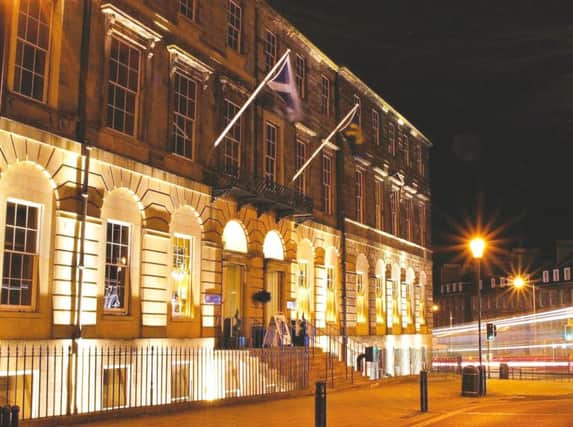Commercial property: Scotland's hotels market attracts global funds


Investors from the United States have been the most prevalent, spending since January £35.3m, all of which was invested in Edinburgh.
Key deals include US-based PGIM’s acquisition of Safe-stay Hostel, International Hotel Properties (British Virgin Islands) buying Holiday Inn Express in the largest single transaction by an overseas investor at £17.7m, and a US investor purchasing the Bonham Hotel. But activity has been buoyant outside the capital too.
Advertisement
Hide AdAdvertisement
Hide AdIndian investors have deployed £8.3m in key deals including MGM Muthu’s acquisition of both the Highland Heritage Portfolio and Newton Hotel in Nairn.
Chinese group Creation Gem International has acquired the Isle of Eriska Hotel & Spa while Singapore-based 7 Hospitality has bought Dundee’s DoubleTree by Hilton.
Steven Fyfe, associate in the hotels team at Savills Scotland, says: “Hotels in UK regional cities are in high demand with overseas investors, fuelled by the relative weakness of sterling, resulting in advantageous exchange rates, and the sharpness of yields in prime markets, providing owners with the opportunity to sell very comfortably just now.
“While Edinburgh remains the most sought-after hotel market in the UK outside of London, Scotland’s competitive tourism industry makes assets located elsewhere attractive investments also, highlighted by 2017’s spread of deals across Dundee, Nairn, Eriska and the Isle of Bute.”
There has been less activity in Glasgow, according to Fyfe.
“A lot of that is down to supply. There are two newbuilds currently undergoing construction in Glasgow, but other than that, there are conversions from listed office buildings going on in the city – such buildings can perform well as hotels – but a brand new business starting from fresh is less attractive to investors.
“Where a portfolio of hotels is purchased, these generally include Glasgow establishments but there are fewer individual hotels changing hands.”
Across Scotland funds and institutional buyers will purchase hotels and lease back to established brands such as Travelodge and Premier Inn.
Advertisement
Hide AdAdvertisement
Hide AdFyfe says: “There has also been an increase in sale and leaseback of owner-operated hotels, the most high profile example being the Courtyard Marriott which was bought by M&G Real Estate but it continues to be operated by Marriott.”
The hotel, at Baxter’s Place near Edinburgh Playhouse and the St James centre, has 240 rooms and changed hands for £23m.
It is an example of a recent trend towards prestigious name branding with mid-market pricing. Fyfe says: “Brands such as the Holiday Inn or the Marriott are increasingly entering the market with mid-price hotels, but global travellers are reassured that the name is recognisable.”
Aparthotels are also gaining in popularity. Fyfe says they are the link between a hotel experience and a serviced apartment and guests are responding with enthusiasm.
He predicts that activity in the sector will continue to grow. “Certainly in Q4 or Q1 of 2018 there is likely to be a lot of portfolio activity.”